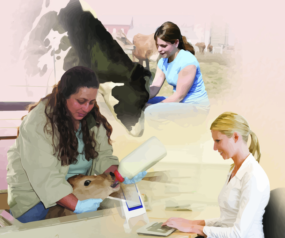As a senior extension associate at Cornell University working in the area of agricultural human resource management, I am pleased to have the opportunity to discuss the work we have been doing at Cornell relating to the increasing trend to hire Hispanic workers in the U.S. dairy industry.
Since the mid-1990s, the number of dairy employers in the Northeast and Upper Midwest hiring Hispanic workers has increased steadily. Dairy managers have found these new workers, for the most part, are willing to work long hours for going-wage rates and come to the farm with a strong work ethic and a willingness to please their employers.
The trend toward hiring Hispanic workers on New York’s larger dairies (usually 400 cows or more) has steadily increased, and currently the trend is moving to smaller dairies of 200 cows or less. Our recent survey shows, for example, that 72 percent hired their first Hispanic employee since January 2000. In response to this trend, we have worked with the Northeast dairy industry to facilitate the transition to an increasing number of Hispanic workers. Beginning in the year 2000, Cornell and Penn State Extension have teamed up to conduct a series of conferences entitled, “Managing the Hispanic Workforce.” Nationally-known speakers presented topics, including cross-cultural supervision, understanding Hispanic cultures, meeting basic needs and community acceptance.
In 2004, we documented the changes that had taken place in the New York dairy industry by conducting a survey of Hispanic employees and their employers. The survey looked at the demographics of the workforce, hours worked, wages, benefits and job-related attitudes. This work provides a solid basis for understanding the workforce and helps managers understand ways to effectively supervise and retain workers.
A third major initiative was undertaken in early December 2005. I led a group of dairy producers and educators to the mountains of Veracruz, Mexico, to visit the communities where some of New York’s Mexican dairy workers come from. The trip had two objectives. The first objective was to have participants become more effective supervisors by understanding the culture of their workers. The second objective was to prepare employers to help their communities understand who their workers are, why dairy jobs are important to them and the contribution the workers make to farm businesses and to the community in general.
Through all this work, I have learned much about these immigrant workers. They are extremely family-oriented, and most come to the United States to improve the quality of life for their families back home. Our survey work reveals the workers specifically ask for as many hours as possible to increase the amount of their weekly pay, which they often send to their families back home.
Our research also indicates Hispanic dairy workers in New York work an average of 62 hours per week. They said they ideally would like to work an average of 66 hours a week, but went on to say they insist on working an average of 55 hours a week or will look for another job. By working many hours and maximizing their paycheck, they have an opportunity to send more money home. Of those surveyed, 97 percent reported sending money to their families at home.
The future seems clear. Hispanic dairy workers are increasing in the United States each year and have continued to be substantial contributors to our dairy industry. Our dairy farms have benefited greatly from their presence. Our challenge is to find constructive ways to make the most of their partnership. PD
Thomas R. Maloney
Senior Extension Associate
Cornell University







